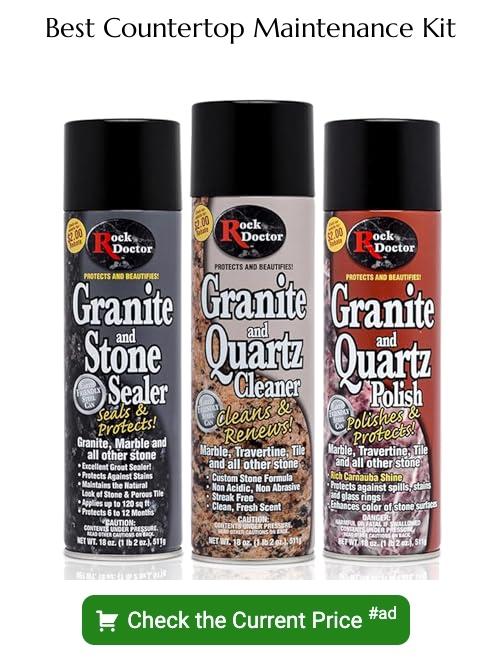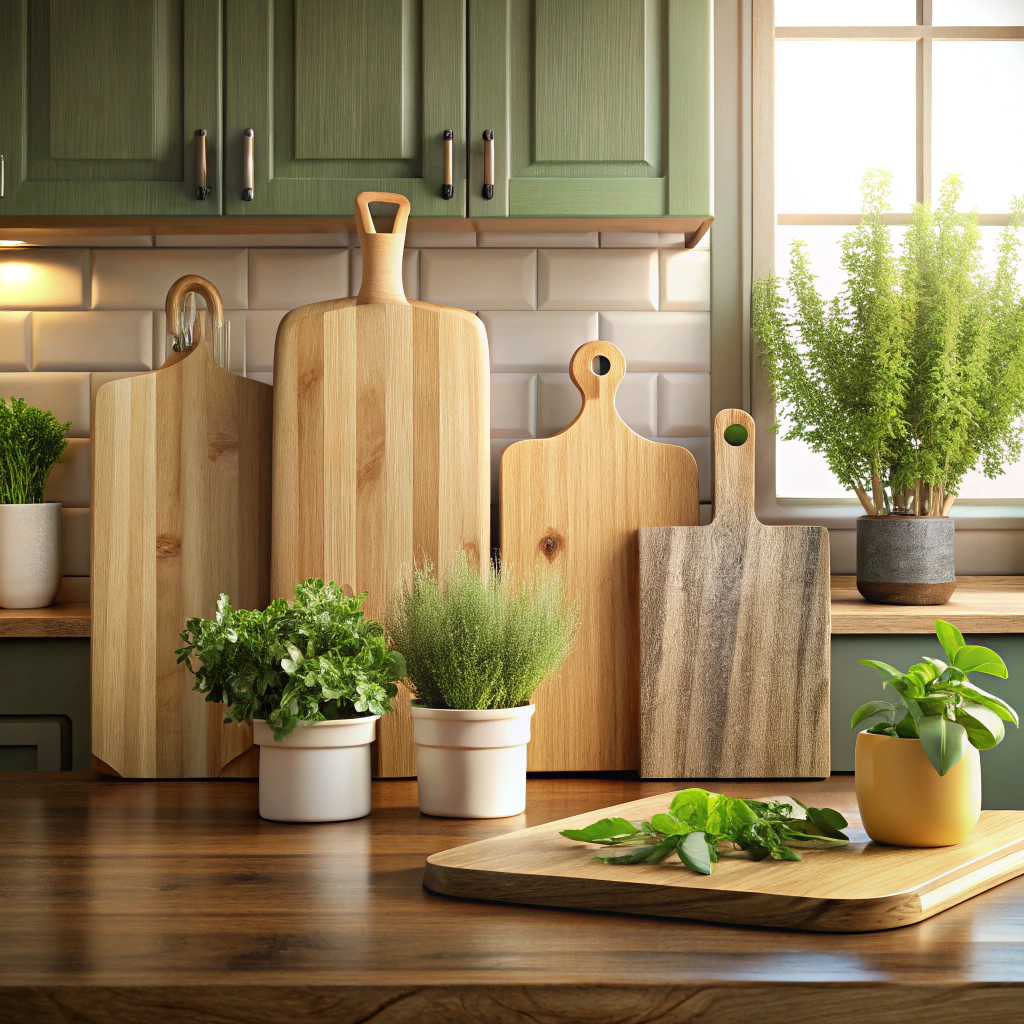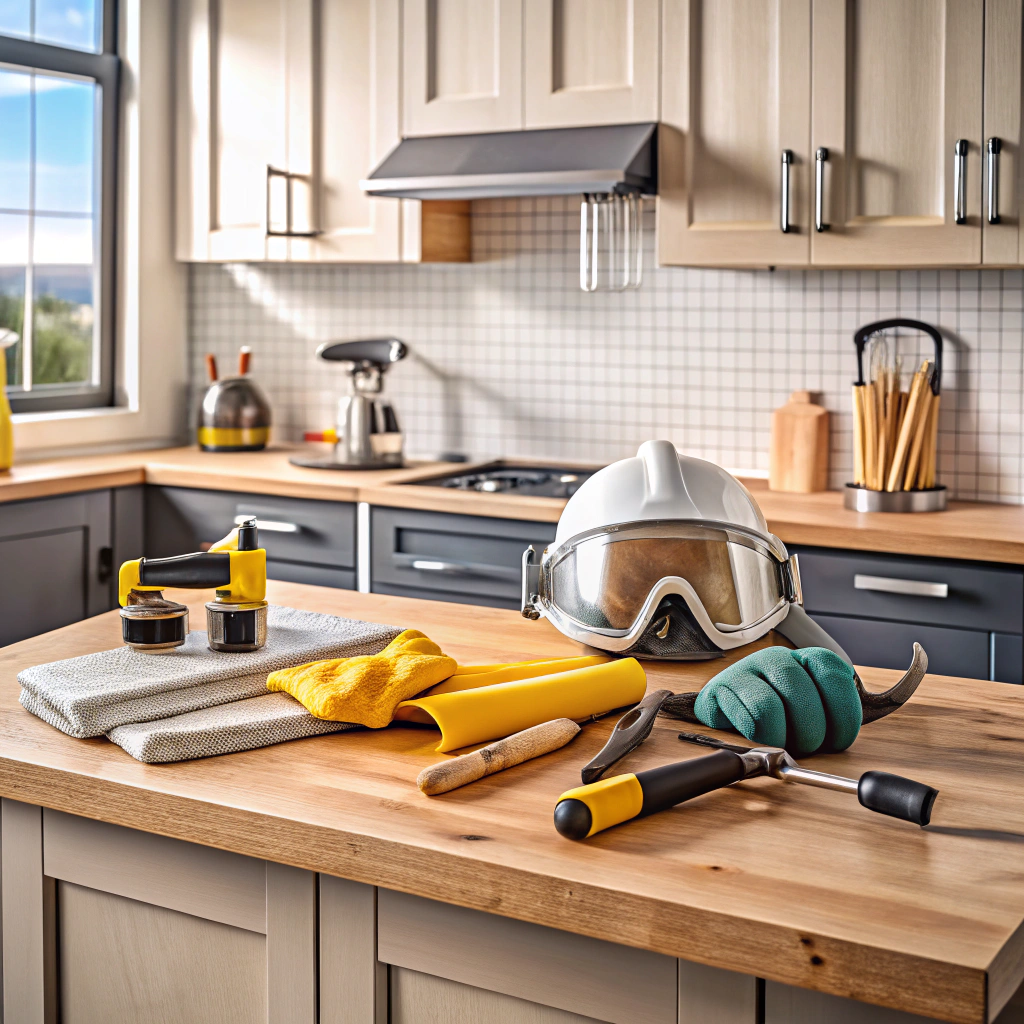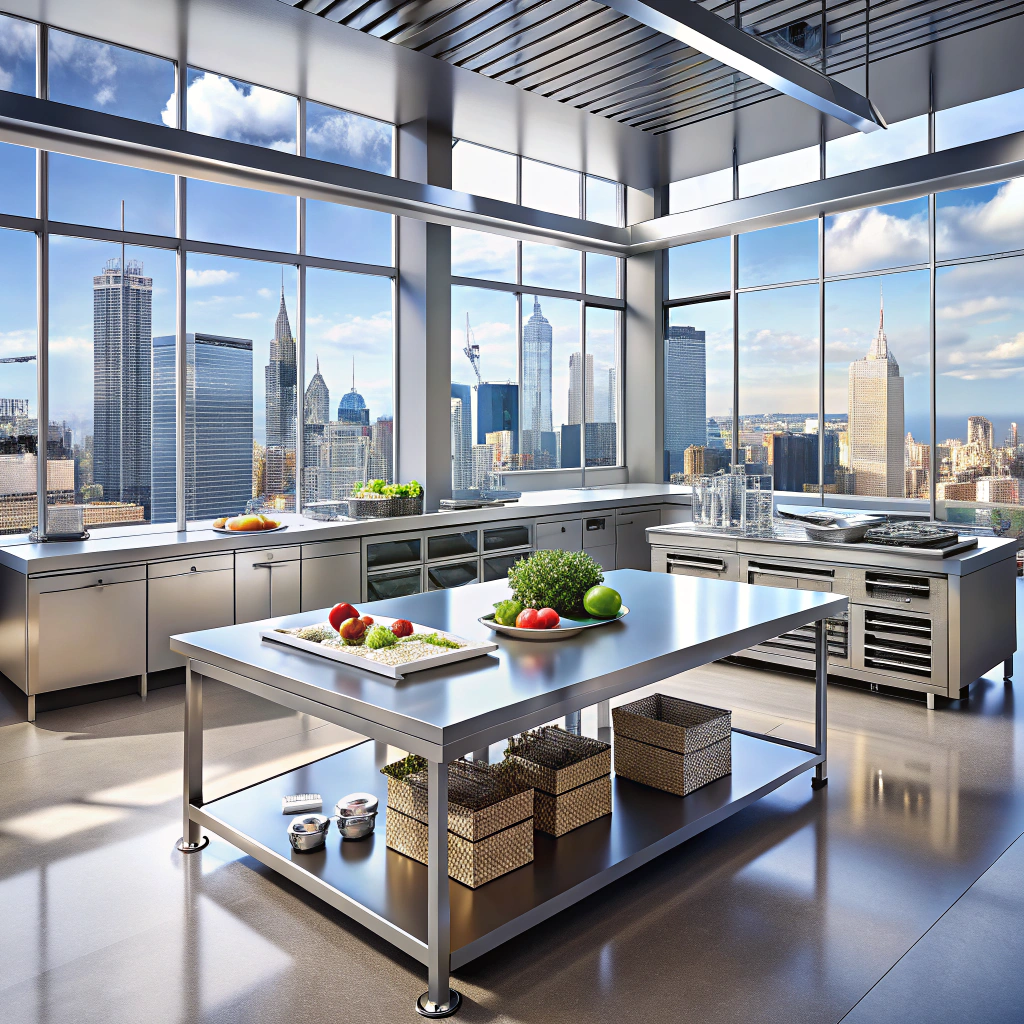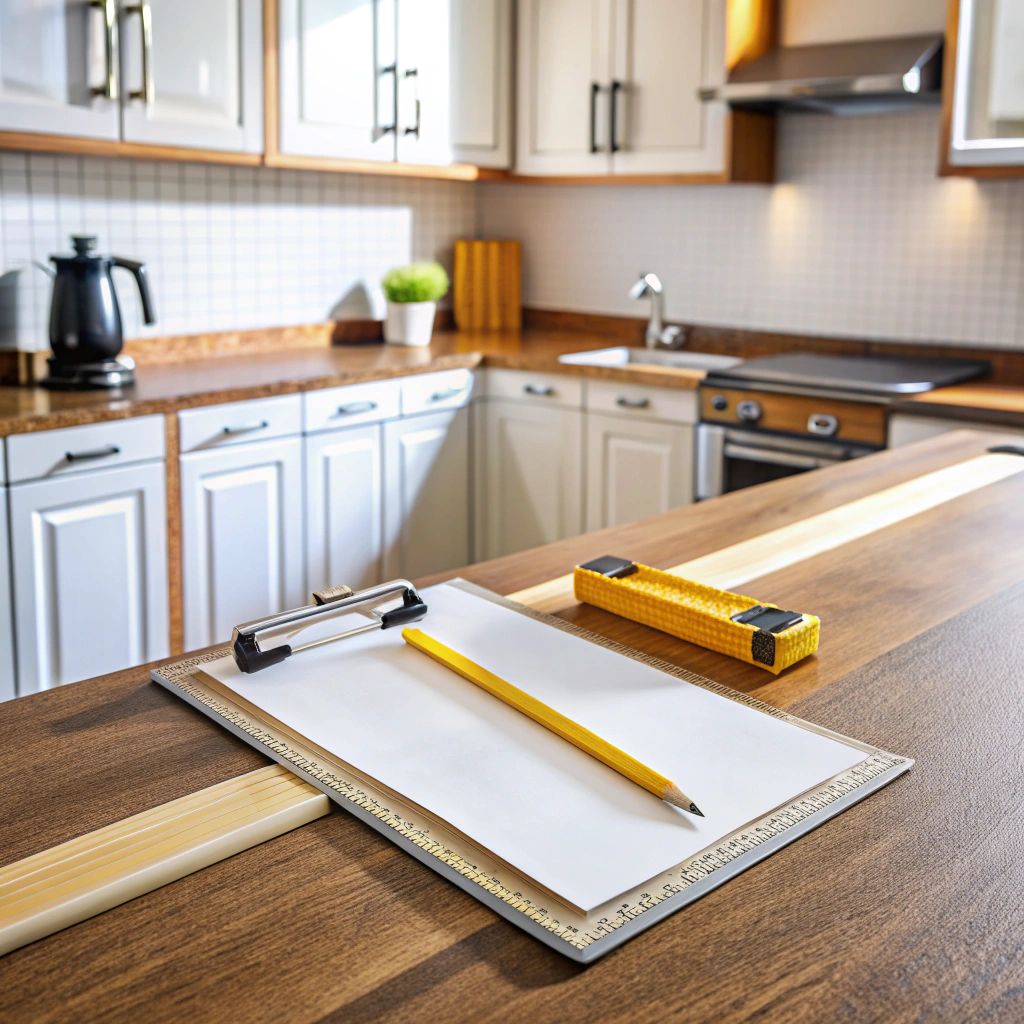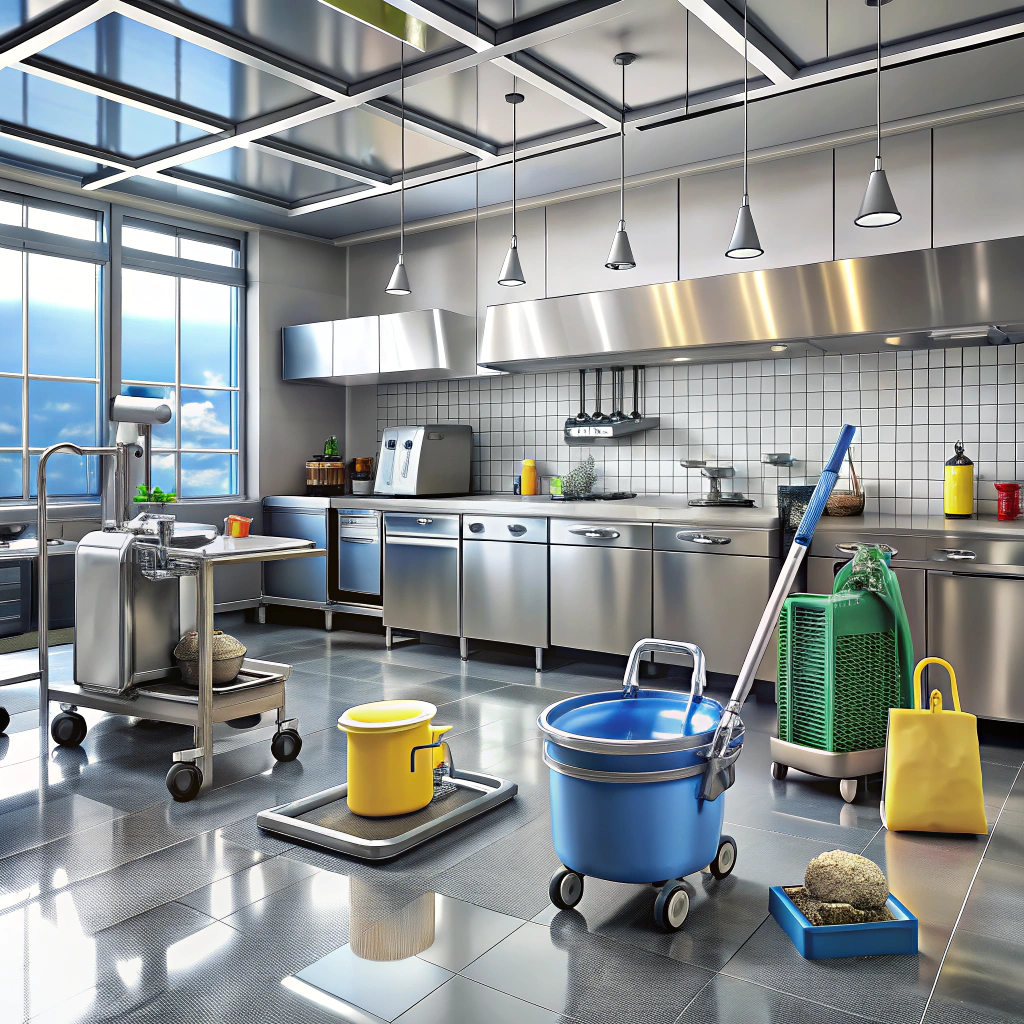Last updated on
Dive into this comprehensive comparison guide because it elucidates the differences and strengths of quartz, granite, and Corian, vital for making informed decisions for your home construction or remodeling projects.
Key takeaways:
- Quartz, granite, and Corian each offer distinct visual characteristics.
- Granite and quartz are highly durable and resistant to chips and scratches.
- Quartz and Corian require less maintenance compared to granite.
- Granite’s availability can vary, while quartz and Corian are more consistent.
- Granite adds value to a home, while quartz is popular for its modern appeal.
What's Inside
Countertop Composition & Appearance
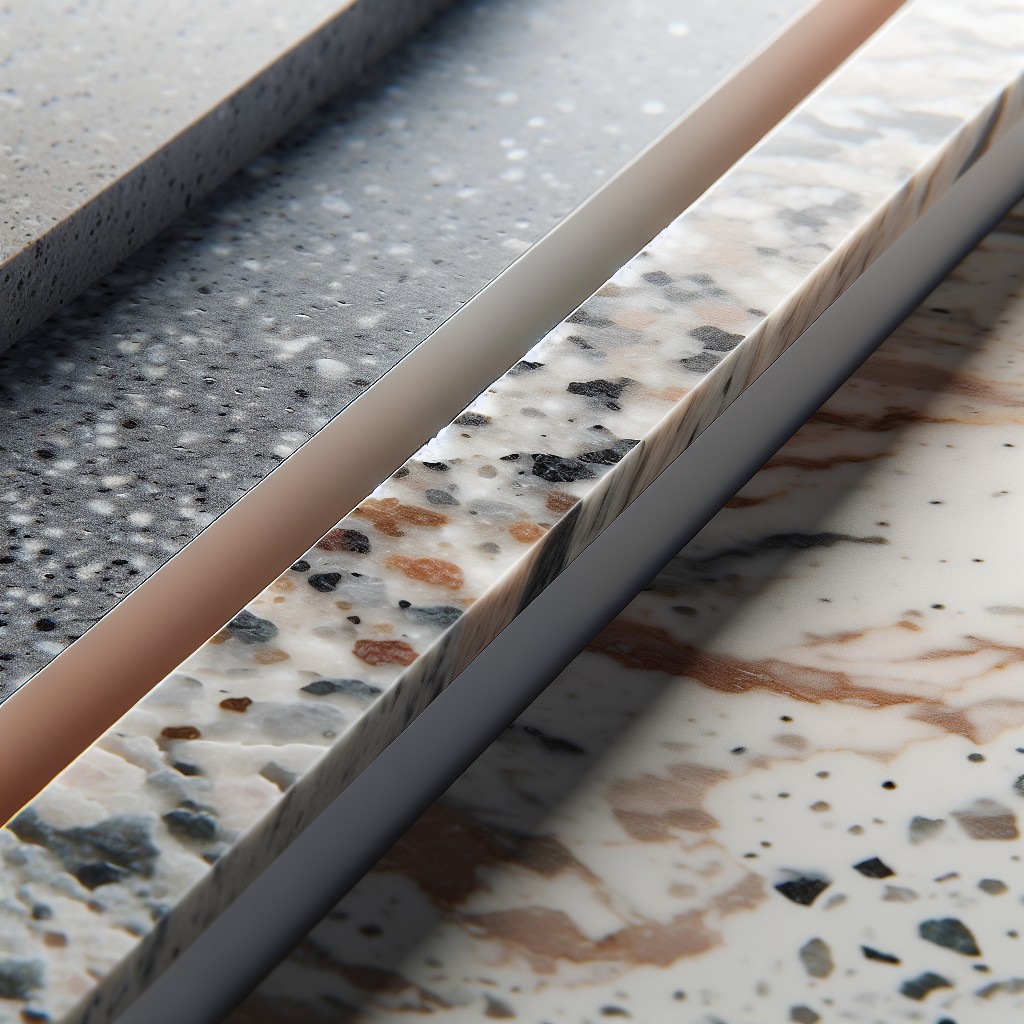
Quartz, granite, and Corian each offer distinct visual and textural characteristics, owing to their unique material compositions.
Quartz countertops are engineered from natural quartz combined with polymer resins, which results in a wide range of colors and patterns that can mimic the look of natural stone or take on unique, contemporary designs.
Granite, being a natural stone, showcases the true randomness of nature, with each slab offering a one-of-a-kind pattern. The colors typically range from earthy tones to deep, rich hues, and the material possesses a dimensional depth that’s hard to replicate.
Corian, as a solid surface material, provides a seamless appearance and can be found in an array of colors and finishes. It’s also customizable, allowing for various shapes and sizes without visible seams, presenting a clean and cohesive look.
The choice between these materials often hinges on aesthetic preferences as much as it does on performance characteristics. Each material can set the tone of a kitchen or bathroom and anchor the design of the room.
Durability
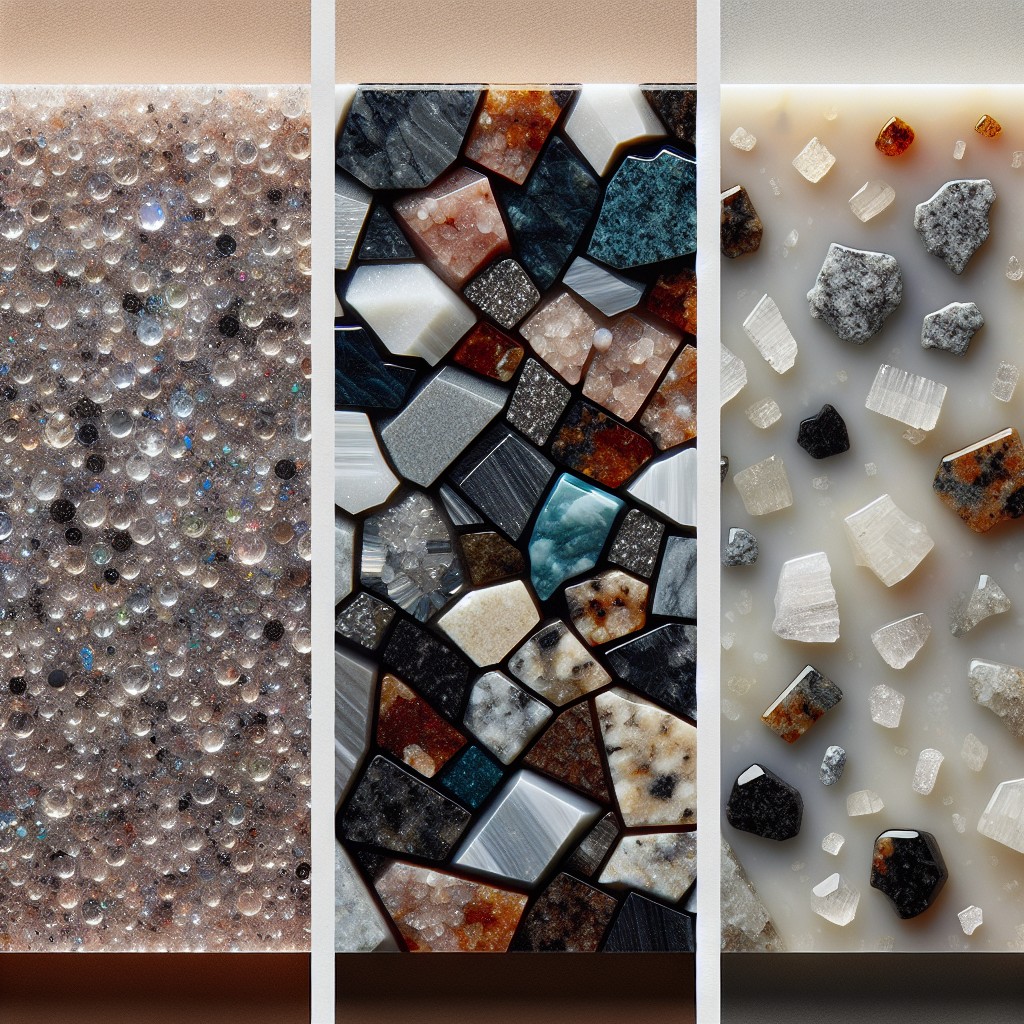
When assessing the longevity of your countertop materials, granite stands out for its ability to withstand a significant amount of wear and tear, thanks to its natural hardness. This makes it a solid option for high-traffic areas like the kitchen.
Quartz is equally resilient, crafted from a blend of natural quartz stones and polymer resins, providing a tough surface resistant to chips and scratches. Its non-porous nature contributes to its strength and prevents it from harboring bacteria or viruses, which can cause degradation over time.
Corian, while durable, isn’t quite as tough as its stone-based counterparts. It’s prone to scratches and heat damage, but it holds up well against moderate use. Its seamless design allows for easy repair of any damages, essentially letting it regain its original condition.
Each material proves to be enduring in its right, yet they each have distinct qualities that may affect their lifespan depending on the context of use. Careful consideration of your lifestyle and kitchen activity will ensure you choose a surface that lasts.
Maintenance
Ease of upkeep varies between these surfaces. Granite requires periodic sealing to prevent stains, as its porous nature can absorb spills. Non-abrasive cleaners are recommended, and a quick wipe-down can restore its shine.
In contrast, Quartz simplifies maintenance routines. Its non-porous characteristic means it resists stains without the need for sealing, offering hassle-free cleaning. A simple soap and water combination suffices for everyday messes.
Corian, being a solid surface material, shares an advantage with Quartz regarding its non-porous feature. It resists stains and does not require sealing. Moreover, scratches on Corian can be buffed out, a unique maintenance perk. However, be mindful of placing hot items on Corian, as it can be less tolerant to heat compared to stone counterparts.
Affordability of Quartz, Granite & Corian Countertops
When budgeting for new countertops, it’s crucial to consider both the upfront costs and the potential long-term savings. Quartz typically falls in the middle, with prices varying based on design and color choices. Granite’s cost hinges on rarity and source location. Rare types with elaborate edge designs increase the price. Corian, generally the most cost-effective, offers a mid-range option with a consistent pricing structure.
Keep in mind, the installation process can influence the overall expense. Complex configurations requiring more labor can bump up the cost for all materials. Additionally, sourcing from local suppliers and selecting standard thicknesses and finishes can help manage expenses without compromising quality.
Countertop Material Availability
When selecting from quartz, granite, or Corian, it’s important to consider how widely available each material is. Granite, being a natural stone, offers unique patterns and colors, as no two slabs are identical. Its availability can vary depending on the rarity of the color or pattern you desire. Typically, you can view and select the exact slab for your home.
Quartz, engineered by combining natural quartz with resin, provides more uniformity in color and pattern. It is readily available and can be found in a wide range of colors and styles, which manufacturers consistently supply.
Corian, a brand of solid surface material, is known for its seamless appearance and can be easily fabricated to fit any design. Its availability is quite high, and it also affords a broad spectrum of colors and finishes to choose from.
In summary, each material has wide availability, but granite’s natural variations can affect its accessibility, while quartz and Corian offer more consistency and widespread distribution.
Value Added to Your Home
When it comes to home value, kitchen updates are at the top of the list for potential buyers. Countertops, as a focal point in the kitchen, can sway opinions and offer an impressive return on investment. Granite, with its unique natural patterns, often fetches a premium due to its luxury feel and durability. It’s not uncommon for home listings to feature granite countertops as a key selling point, signaling to buyers that the home is updated and well-maintained.
Quartz, while engineered, brings a consistency in appearance that can appeal to those looking for a particular aesthetic. Its growing popularity also means that it’s becoming a marker of a modern, high-end kitchen renovation. Not to mention, quartz’s low maintenance appeal contributes positively to its perception of value.
Corian, as a solid-surface option, tends to be appreciated for its seamless integration and the ability to repair scratches, although it might not have the same ‘wow factor’ that stone countertops convey. Nevertheless, updated Corian surfaces can make the kitchen look sleek and may still bolster home value, particularly if the existing countertops are dated or worn.
Selecting the right countertop can be an investment in your lifestyle, as well as a strategic choice for future resale purposes.
Countertop Sustainability Concerns
When considering the environmental impact of countertop materials, there are several factors to keep in mind:
- Resource Extraction: Granite is a natural stone, meaning it’s mined from quarries. Extensive quarrying can be detrimental to the environment. However, some granite can be sourced responsibly.
Manufacturing Process: Quartz is an engineered product, combining natural quartz with resins. This process can be energy-intensive, but the materials used are abundant. Quartz can also contain recycled content which reduces waste.
Longevity: Durability translates to sustainability in terms of reducing the need for replacements. Both quartz and granite score highly on longevity, assuming proper maintenance.
End of Life: Consider what happens after these countertops serve their purpose. Granite can be repurposed or recycled, but it’s not biodegradable. Quartz is also non-biodegradable, and its resin content makes it more challenging to recycle.
VOC Emissions: Corian, as a solid surface made from a mix of acrylic polymer and natural minerals, may have lower VOC (Volatile Organic Compounds) emissions during manufacturing, which is advantageous for indoor air quality.
Certifications: Look for sustainability certifications such as GREENGUARD, NSF, and Cradle to Cradle, which can provide some assurance that the products have met certain environmental standards.
By assessing these points, one becomes more equipped to make a mindful decision that aligns with their environmental values while selecting a countertop material.
Stain, Scratch, and Heat Resistance Comparison
When considering which countertop to choose, understanding how each material stands up to everyday kitchen challenges is essential. Granite, while robust, is porous and may absorb stains if not sealed properly. Sealing granite annually enhances its stain resistance, but this is an extra maintenance step to consider.
Quartz, on the other hand, is non-porous and highly resistant to staining. Spills from coffee, wine, or oily substances won’t penetrate the surface, making cleanup a breeze and the need for sealants nonexistent.
In the realm of scratch resistance, granite shows its strength. Its natural hardness makes it difficult to scratch under normal usage. Quartz is also tough, but be wary with sharp objects as it can be more susceptible to scratches than granite.
Moving on to heat resistance, granite takes the lead, being able to withstand high temperatures without damage — a hot pan won’t leave a mark. Corian offers less heat resistance; placing a hot pan directly on its surface isn’t recommended as it can cause warping or melting.
Ultimately, the choice depends on your kitchen’s demands and your personal preference for maintenance and aesthetics. Each material offers a unique blend of benefits, with the right one providing long-lasting satisfaction in your culinary space.
Granite Countertops: Pros & Cons
Granite, a natural stone, brings uniqueness to your kitchen or bathroom, as no two slabs are identical. Its high-end aesthetic appeal, characterized by rich color variations and distinctive patterns, sets a luxurious tone for any interior design. However, this material does require some care to maintain its natural beauty.
Pros:
- Unique Aesthetics: Each slab has a one-of-a-kind pattern that adds a custom look to your space.
- Highly Durable: Resistant to scratches and chips, it’s tough enough for high-traffic areas.
- Heat Resistant: Granite can withstand high temperatures, making it ideal for kitchen use.
- Adds Value: Its premium look can increase the resale value of your home.
Cons:
- Porous Surface: Without regular sealing, it can absorb spills and harbor bacteria.
- Heavy Weight: The stone’s heft requires sturdy cabinet bases for support.
- Potential for Cracking: Improper installation or sudden impacts can cause cracks.
- Cost: Premium slabs come with a higher price tag compared to some other materials.
Quartz & Corian Countertops: Pros & Cons
Quartz countertops offer a blend of natural quartz stone and man-made resins, presenting a uniformly rich and polished appearance. They’re remarkably tough, non-porous, and don’t require sealing, unlike natural stone options. However, despite their resilience, they can be susceptible to heat damage and are generally pricier than some alternatives.
Corian, a pioneer in solid surface countertops, is a plastic composite material that provides a seamless finish and can be fashioned into virtually any shape. Its non-porous nature makes it easy to clean and resistant to stains. Repairs for scratches or chips are often straightforward with Corian. On the downside, it doesn’t have the same high-end appeal or heat resistance as quartz, and sharp objects can more easily scratch its surface.
FAQ
Is quartz or Corian better?
When considering durability and resistance to scratches and dents, quartz is a better choice than Corian.
Which is cheaper Corian quartz or granite?
Typically, Corian quartz is less expensive than granite.
Which is better Corian or granite?
While Corian can attract minor scratches, its ability to be restored by simple methods like using a scouring pad makes it a more favorable choice than granite that tends to chip and crack over time, leading to costly replacements.
How does the durability of Quartz compare with that of Corian and Granite?
Quartz countertops outshine both Corian and Granite in terms of durability as it’s more hard-wearing, less prone to chips and cracks, and does not require sealing like its counterparts.
What are the aesthetic differences among Quartz, Granite, and Corian?
Quartz is renowned for its luxurious, diverse color range and high durability, granite is celebrated for its unique, natural vein patterns and individuality, while Corian offers seamless integration for a uniformed, clean aesthetic and is available in numerous color options.
What maintenance demands does each material- Quartz, Granite, and Corian present?
Quartz maintenance entails periodic cleaning using water and mild soap; granite requires annual sealing for stain protection, and Corian demands easy upkeep with regular cleaning and avoids harsh chemicals.
